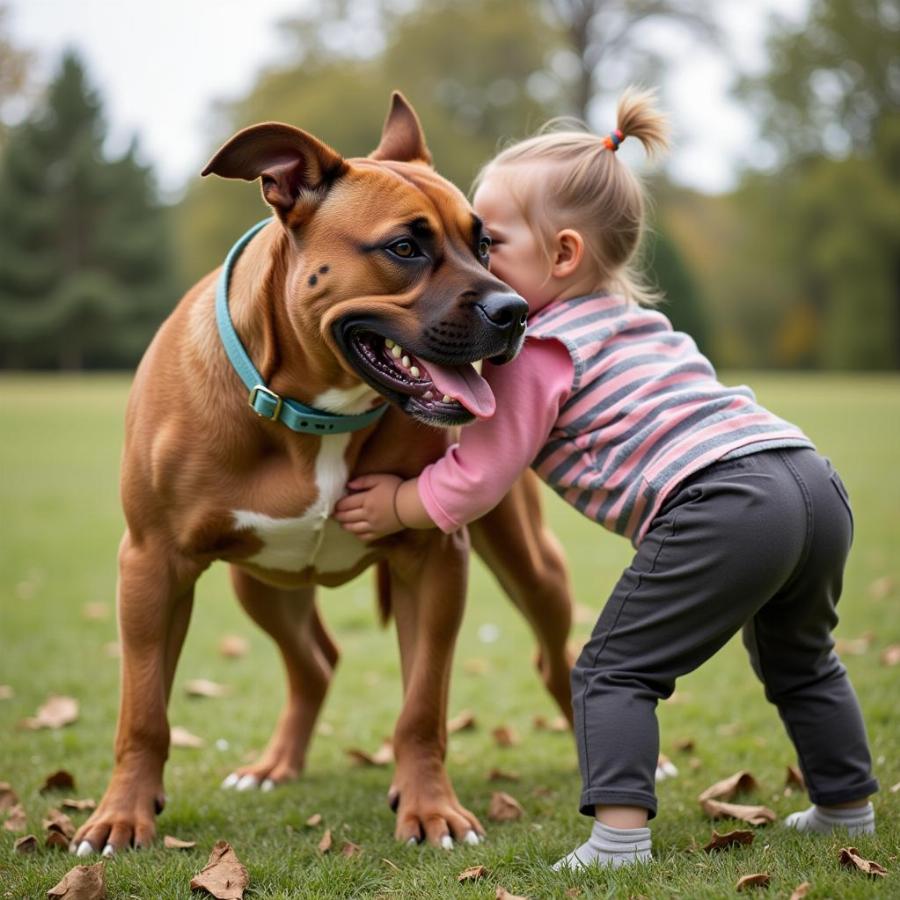The phrase “15 most illegal dog breeds in the world” often pops up in online searches, sparking curiosity and concern among dog lovers. While certain breeds face restrictions in specific locations due to perceived temperament or potential danger, the concept of a universally “illegal” dog breed is largely a misconception. This article delves into the realities behind breed-specific legislation (BSL), explores the factors contributing to breed reputation, and highlights the importance of responsible dog ownership regardless of breed.
Understanding Breed-Specific Legislation (BSL)
“Are certain dog breeds truly illegal?” is a common question. The answer isn’t straightforward. Instead of outright bans across the globe, we see restrictions varying widely by country, state, or even city. These restrictions can range from mandatory muzzling in public to complete prohibition of ownership. Factors influencing BSL often include historical incidents, perceived public safety concerns, and lobbying efforts. It’s important to research the specific laws in your area before bringing a new dog home.
Debunking the “Most Illegal” Myth
The idea of a definitive list of the “15 most illegal dog breeds” is misleading. No global authority dictates which breeds are universally prohibited. Lists circulating online often reflect breeds commonly restricted in certain regions, not a worldwide consensus. These lists often include breeds like Pit Bulls, Rottweilers, and Doberman Pinschers, which have faced restrictions in various places due to concerns about their strength and potential for aggression. However, these same breeds can be beloved family pets in other areas with responsible owners.
 Pit Bull as a loving family pet
Pit Bull as a loving family pet
The Impact of Breed Reputation
Negative portrayals in media and anecdotal stories can significantly impact public perception of certain breeds. This can lead to fear and prejudice, fueling support for BSL. It’s crucial to remember that a dog’s behavior is influenced more by individual temperament, training, and socialization than by breed alone. “Breed doesn’t define behavior,” says renowned canine behaviorist Dr. Sarah Miller, “It’s the responsibility of the owner to provide proper training and socialization for any dog, regardless of breed.”
Focusing on Responsible Dog Ownership
Rather than fixating on breed-specific bans, the focus should be on promoting responsible dog ownership across the board. This includes:
- Early Socialization: Exposing puppies to various people, animals, and environments.
- Consistent Training: Using positive reinforcement methods to establish clear boundaries.
- Proper Containment: Ensuring secure fencing and responsible leash handling.
- Understanding Dog Body Language: Recognizing signs of stress or aggression.
Is it difficult to own a restricted breed?
Owning a restricted breed can involve additional challenges. You might encounter higher insurance premiums, limitations on where you can live, and the need to comply with specific regulations like muzzling or sterilization. Understanding these potential hurdles is crucial before committing to owning a restricted breed. It’s similar to the k9 sheriff dog guidelines which require specific training and certifications.
Are there any truly banned dog breeds?
While no breed is universally banned, some countries have implemented strict regulations against certain breeds considered dangerous. These bans often result from specific incidents or concerns about public safety. For instance, some countries have banned breeds like the Fila Brasileiro and the Tosa Inu due to their history in dog fighting or guarding. This reinforces the importance of researching local laws and regulations.
How can I find out about breed restrictions in my area?
Checking with your local animal control agency, city council, or other relevant authorities is the best way to determine breed-specific regulations in your area. These organizations can provide up-to-date information on permitted breeds, licensing requirements, and any restrictions that may apply. Being informed is key to responsible dog ownership.
Conclusion
The notion of “15 most illegal dog breeds” is a simplification of a complex issue. While breed-specific legislation exists in many places, responsible dog ownership is the key to ensuring the safety and well-being of both dogs and the community. Focusing on training, socialization, and responsible care, regardless of breed, is crucial.
FAQ
- Are Pit Bulls inherently dangerous? No, a dog’s behavior is influenced more by upbringing and training than breed.
- Are there alternatives to BSL? Yes, focusing on responsible ownership practices and addressing individual dog behavior is more effective.
- Where can I find information on local dog laws? Contact your local animal control or city council.
- What if my dog’s breed is restricted in my area? Research your options, which may include obtaining permits or moving to a more welcoming location.
- How can I advocate for responsible dog ownership? Support organizations that promote education and training, and speak out against breed-specific prejudice.
- Do breed restrictions really improve public safety? Studies suggest that BSL is not an effective way to enhance public safety.
- What are the responsibilities of a responsible dog owner? Providing proper care, training, socialization, and ensuring the dog’s well-being.
Related Resources on Beaut Dogs
For more information on dog breeds and responsible ownership, check out these articles:
Beaut Dogs: Your Trusted Source for Dog Breed Information
Beaut Dogs is your go-to resource for reliable and insightful information on the fascinating world of dog breeds. We offer comprehensive guides on breed characteristics, care tips, training advice, and much more. When you need assistance, please contact us via Email: [email protected] for detailed and accurate answers. We’re here to help you navigate the wonderful journey of dog ownership.